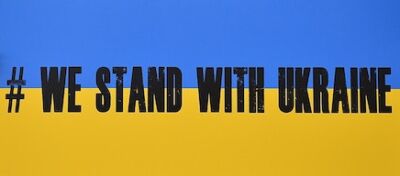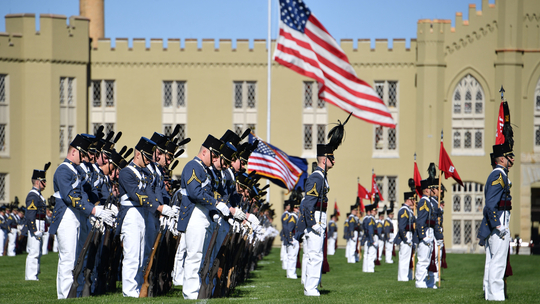GOING HOME
A grateful message from a Virginia Military Institute alumnus to America’s fallen heroes. Never forgotten!
By Wayne Marshall, Virginia Military Institute
Every man or woman who has ever gone to war has left all they have ever known behind and entered a world where all accepted rules and norms no longer apply. Through all of the hardship, all of the horror, all of the insanity, buried deep down in every mind is one thought: one day this tour, this war, will be over and I will be going home.
Time becomes elastic in this world of war. Sometimes it drags along in excruciating boredom and in times of extreme peril the human body pumps endorphins into your system that speeds the activity of your brain and makes everything going on around you seem like it is occurring in very slow motion. Yet through it all, you always know: one day I will be going home.
There is a different perception of things in this wartime existence. When Otis Reading sang his song “Sitting on the dock of the bay” it was received as a simple reverie of good times back home in the states. But for those in Vietnam it was a reminder of all that had been left behind and was so far out of reach. In WWII, the song “White Christmas” had the same effect on millions of soldiers scattered around the world.
Different wars, different times the mental image of going home has been depicted in a number of ways that only the initiated understood. For bomber crews returning from runs over Germany, the white cliffs of Dover appearing on the horizon meant that you were now under the protection of the RAF and would soon be safe on the ground. For Vietnam soldiers, it was the freedom bird.
Where all military aircraft were painted in drab colors, these commercial airplanes chartered by the Military Assistance Command were silver with bright commercial colors. They were your ticket back into the “real” world, or CONUS, which stood for “continental United States. When you heard the plane’s door close and the engines spool up, you could feel the tension rising throughout the aircraft and when the wheels finally left the ground you could feel the weight of the past rising off of your shoulders.
The young women who served as flight attendants were some of the most remarkable ladies that I ever met. On the flights over to Vietnam they dealt with all of the tensions and fears of their charges and kept a bright smile on their faces. On the way back they dealt with a riot of emotions and kept us all together. They all deserved medals.
I almost missed my freedom bird flight home. I woke up one morning feeling slightly off and collapsed unconscious on the team house floor. I never heard the requested call in for a medivac flight and all that I remember of the flight was the noise of the helicopter blades lifting me into the air. It felt like wings bearing me aloft. Days later when I was getting dressed to leave the corps hospital I found a business card in my shirt pocket. On it was a picture of a helicopter and the names of the aircrew who had picked me up. In the middle of the card were the words: “He ain’t heavy. He’s my brother.”
Altogether we deployed twelve thousand helicopters to Vietnam. Over five thousand of them were shot down or crashed killing more than five thousand seven hundred pilots and aircrew. The crew that picked me up from the Tinh Binh compound did not have to come in for me: because of enemy activity, the helipad had been declared closed to air traffic. Yet they came in anyway, leaving only the business card behind in witness of what they had done.
But not all of those who went off to war came home this way. For some, the journey home started off in a body bag and ended with a casket being delivered to the family left behind. It is this aspect of going home that I wish to talk about today.
Do you know what the prime directive is? Every living thing has a command imprinted in its DNA taking precedent over all other genetically inherited programs. The command is very simple: SURVIVE AND PROPAGATE. It is what allows the continuation of life on this planet. But for those following in Christ’s footsteps, something has been changed.
When Christ was in Jerusalem on his way to his death, he commanded his disciples to love one another as He had loved them. Furthermore, he told them that greater love has no man but this, that he lay down his life for his friends. Of the twelve disciples, only John lived to die of old age. The rest all died violently for their beliefs.
Today it is as hard for some people to accept these teachings as it was for Thomas to accept the return of Christ from the dead. They want proof. They want to put their hands into the bloody wounds and have something more than faith to justify their beliefs.
Like men who shut their eyes tightly and then demand that they be shown the proof, people look out around them and fail to see God’s presence in the ongoing sacrifice of men in uniform. Jesus was able to go to Jerusalem knowing that He was going to his death because he KNEW that he was in his Father’s arms. He was going home. And today, two thousand years later, young men and women go to war knowing that one way or the other that they are going home.
Living our day to day lives in this mortal world, we are surrounded by the beauty of God’s creation. No one wants to leave it behind. Those soldiers, sailors and airmen who laid down their lives for others opened their hearts to the Lord and have gone home.
Over the years I have been privileged to know a few of these people who have died in war. Knowing them has enriched my life more than any accumulation of fame or fortune could ever have accomplished. Do not grieve for them. They have not died; they have gone home.
God’s presence in this world is reflected in the actions of these men and women. If that is not proof of God’s love and existence, I don’t know what is.
Robert is an Army combat veteran with service in Vietnam, Europe, the Pentagon, and the Department of State. He is an advocate for disabled veteran awareness and suicide prevention.



Leave A Comment